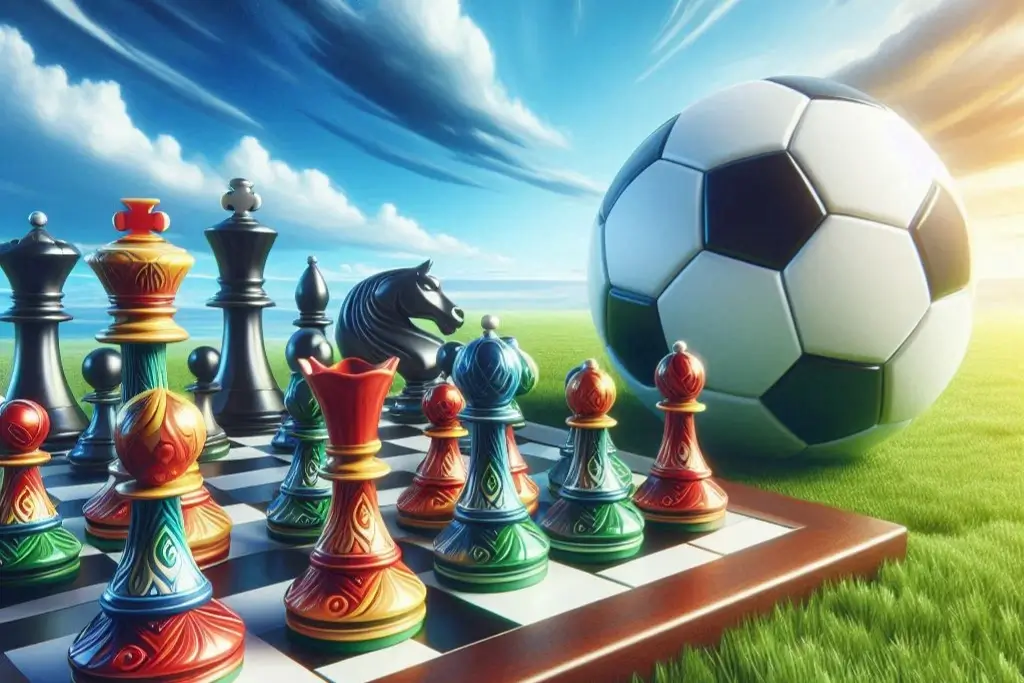Introduction
Is chess a sport? Yes, it is.
While some may view it as just a board game or intellectual hobby, chess is officially recognized as a sport by the International Olympic Committee and governed globally by FIDE. It involves structured competition, high-level skill, intensive training, and even physical and mental endurance at elite levels.
In this blog, we’ll break down the key reasons why chess qualifies as a sport, examine counterarguments, and highlight how it fits into the global sporting landscape.

Official Recognition of Chess as a Sport
International Olympic Committee (IOC) Recognition
Chess has been officially recognized as a sport by the International Olympic Committee (IOC) since 1999. This recognition is not symbolic – it means that chess meets several key criteria typically required of sports: a competitive structure, a high level of skill, and a well-defined organizational framework.
FIDE’s Role as a Governing Body
FIDE (Fédération Internationale des Échecs or World Chess Federation) serves as the global governing body for chess and is officially recognized by the IOC. Like governing bodies in traditional sports, FIDE is responsible for organizing world championships, maintaining international rankings, setting the rules of play, and ensuring fair competition across all levels of the game.
Global Reach and Participation
Far from being a niche pastime, chess enjoys massive global participation. It is estimated that over 600 million people play chess worldwide, and 189 national federations are affiliated with FIDE. This widespread appeal and structured presence in nearly every country further supports its classification as a global sport.
Why Chess Is Considered a Sport
Chess may not involve running, jumping, or lifting weights, but it shares many essential features with traditional sports. From intense competition to strict codes of conduct, chess exhibits the structure, discipline, and rigor commonly associated with athletic endeavors.
1. Competitive Nature
At its core, chess is a fiercely competitive activity. Players compete in structured tournaments at every level – from school competitions and local clubs to national championships and elite international events. Matches can be individual duels or team-based encounters, where collective preparation and coordination matter just as much as personal skill. Like any sport, the objective is to outperform the opponent using strategy, timing, and precision.
2. Skill, Training, and Coaching
Success in chess demands a high level of cognitive skill, deep strategic understanding, and continuous practice. Top players don’t rely on talent alone – they work closely with coaches, study countless hours of theory, and follow rigorous training routines. Many also incorporate physical fitness, nutrition, and psychological preparation into their routines, mirroring the holistic approach seen in professional athletics.
3. Mental and Physical Endurance
Although chess is a mental sport, it places heavy demands on physical stamina as well. Elite matches can last for more than six hours, requiring players to maintain intense concentration and composure throughout. The mental strain often leads to physical fatigue, making endurance a critical factor. Top players must learn to manage stress, recover quickly, and maintain peak focus under pressure – just like athletes in any physically demanding sport.
4. Sportsmanship and Rules
Chess is governed by a strict code of conduct designed to uphold fairness and respect. Players are expected to shake hands before and after games, and poor sportsmanship can result in penalties or disqualification. FIDE enforces anti-doping regulations as well, aligning chess with other Olympic-recognized sports that promote integrity and clean competition. These protocols highlight the professional standards that govern high-level chess play.
5. Presence in Global Sporting Events
Chess has a strong presence in international sporting events. The Chess Olympiad, held every two years, brings together national teams from around the world to compete on a global stage. Chess has also been included in multi-sport competitions like the Asian Games, and it was featured as an exhibition event at the 2000 Sydney Olympic Games. While not yet part of the official Olympic program, chess continues to campaign for full inclusion, further underscoring its ties to the world of sports.

Arguments Against Chess as a Sport
Despite its recognition by major governing bodies, not everyone agrees that chess qualifies as a sport. Critics point to certain characteristics that set it apart from more traditional athletic disciplines.
1. Lack of Physical Exertion
One of the most common arguments against classifying chess as a sport is its lack of physical activity. Traditional sports typically involve measurable physical effort – running, jumping, or coordination – while chess is largely sedentary. Although top players experience intense mental fatigue and often train physically to enhance endurance, skeptics argue that mental strain alone doesn’t equate to the physical exertion required in sports like soccer or athletics. This distinction leads some to categorize chess as a game or intellectual pursuit rather than a sport.
2. Differing National Classifications
Not all countries officially recognize chess as a sport. For example, in the United Kingdom, chess is typically classified as a cultural or educational activity rather than an athletic one. These differing classifications reflect broader debates about what defines a sport and reveal that acceptance is not universal. While some nations include chess in their sports federations, others view it more as a scholastic or artistic discipline.

What the Governing Bodies Say
Despite ongoing debate, leading sports and chess authorities firmly classify chess as a sport – and emphasize its multifaceted nature.
The International Olympic Committee (IOC) has officially recognized chess as a sport since 1999, citing its structured competition, required skill, and international organization.
FIDE, the World Chess Federation, reinforces this view. According to the FIDE Statutes:
“Chess is one of the most ancient, intellectual and cultural games. It is a combination of sport, of scientific thinking and of elements of art.”
This statement captures the unique identity of chess – it is a mental battleground governed by sportsmanship and preparation, underpinned by strategy and creativity. The recognition from global authorities helps legitimize chess not only as a game of intellect but also as a discipline that rightfully belongs in the broader world of sport.
Conclusion
The question of whether chess is a sport has been debated for years, but the evidence supporting its classification as one is compelling. Chess is officially recognized as a sport by the International Olympic Committee and governed globally by FIDE, which oversees its rules, competitions, and ethical standards. The game features structured, high-level competition, demands rigorous training and mental discipline, and is played by millions around the world in organized formats.
That said, it’s important to acknowledge the opposing views. Some critics argue that the absence of physical exertion sets chess apart from traditional sports. Additionally, national perspectives vary, with some countries treating chess more as a cultural or educational activity than a sport.
Still, when considering the global recognition, the competitive and organizational structure, and the shared values of discipline, fairness, and excellence, chess clearly aligns with the core principles of sport. While it may not look like most physical sports, chess earns its place among them – proving that true competition is not always measured in physical movement, but also in the power of the mind.
FAQ
1. Why does the International Olympic Committee consider chess a sport?
The IOC recognizes chess as a sport because it meets key criteria such as organized competition, governing bodies (like FIDE), adherence to rules, and the requirement for skill and training – just like in other recognized sports.
2. Is a chess player an athlete?
Yes. Top chess players follow rigorous training routines, often including physical fitness, mental preparation, specialized coaching, and nutrition—similar to athletes in physical sports.
3. Does chess burn calories?
Yes, chess does burn calories! Although it’s not a physical workout like running or cycling, the intense concentration, mental effort, and stress during long games increase calorie consumption. For more details, check out my full post: Does Chess Burn Calories?
4. Has chess ever been part of the Olympic Games?
Chess was featured as an exhibition event at the 2000 Sydney Olympics. Though it’s not part of the official Olympic program yet, it continues to be included in other major multi-sport events like the Asian Games.
5. Can a game be a sport if it doesn’t involve physical activity?
Yes. Chess is a sport even though it doesn’t involve physical activity. Many recognized sports emphasize mental skill and strategy. Chess, like archery or shooting, highlights mental performance and discipline, which qualifies it as a sport.
